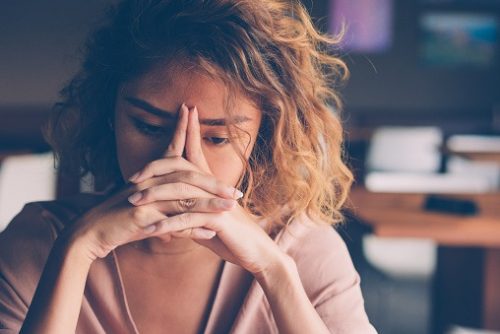
Mental health awareness is significantly one of the most discussed issues nowadays. Not only because it fits with the current pandemic situation but because people are now paying more attention to the debilitating effects of the symptoms. Now that we know more about depression, it’s become easier to find.
People are increasingly recognizing the debilitating effects that these challenges can have on individuals’ lives. Many individuals are now putting an effort into helping one another. They strive to gain a deeper understanding of how these problems and personality disorders affect various aspects of life, such as childhood experiences, social connections, community involvement, relationships, and life decisions.
Types Of Mental Health Tests
A mental health test is designed to test an individual’s mental health and identify any potential mental health disorders. There are several types of mental health tests, each with its own advantages and limitations. Online mental health tests are one possibility. You might also be able to find an ADHD test, depression test, and anxiety test. Below are some common types of mental health tests that are used by a mental health provider:
Self-Assessment Tests
Self-assessment tests are questionnaires or quizzes that individuals can take to evaluate their mental health status. This mental health test is often available online or in books and can be completed privately. Make sure to complete the tests and fill in the needed responses honestly to get accurate results. Self-assessment tests can help individuals become more aware of their mental health symptoms and provide a starting point for further evaluation.
Psychological Evaluations
Psychological evaluations are conducted by a mental health professional, such as a psychologist or psychiatrist. These evaluations typically involve interviews, standardized tests, and behavioral observations. Psychological evaluations are more in-depth than self-assessment tests and can provide a comprehensive picture of an individual’s mental health status.
Diagnostic Assessments
Diagnostic assessments are used to diagnose specific mental health disorders. These mental health tests typically involve an online screening that includes structured interviews, symptom checklists, and standardized tests. Diagnostic tests are often used in conjunction with psychological evaluations to confirm or rule out a specific mental health disorder.
Neuropsychological Tests
Neuropsychological tests evaluate an individual’s cognitive abilities, such as memory, attention, and problem-solving skills. This mental health test can help identify any cognitive impairments that may be related to a mental health disorder or neurological condition. Also, this disorder test might reveal eating disorders.
Personality Tests
Personality tests evaluate an individual’s personality traits, such as introversion/extroversion, openness, and agreeableness. This mental health test can help mental health professionals understand an individual’s personality or disorder and how it may relate to their mental health symptoms.
It’s important to note that each type of mental health test has its own limitations, and a mental health diagnosis should never be based solely on the results of a single mental health test. A mental health diagnosis should be made by a qualified mental health professional who takes into account a variety of factors, including an individual’s symptoms, personal history, and current life circumstances. If you take an online mental test, it’s vital to contact a health professional.

How To Prepare For Mental Health Tests?
Preparing for a mental health test can help ensure that the test is accurate and helpful. Below are some tips for how to prepare for a mental health test:
- Research the type of test you will be taking. Before the mental health test, do some research to learn more about the type of test you will be taking. Understanding the purpose and format of the test can help you feel more prepared and less anxious.
- Gather any relevant information. Bring any relevant medical records or documents to the mental health test. This may include previous mental health tests, medical records, or medications you are taking.
- Be honest and open during the test. To ensure an accurate test, it is important, to be honest and open about your mental health symptoms and history. This includes any past or present mental health conditions, as well as any stressful life events or challenges you may be experiencing.
- Prepare questions for the mental health professional. Write down any questions you have for the mental health professional conducting the test. This can help ensure that all of your concerns are addressed and that you have a clear understanding of the test results.
- Bring a support person, if desired. If you feel more comfortable having a friend or family member with you during the test, ask if it is possible to bring them along.
- Take care of yourself after the test. After the test, take time to practice self-care, such as getting enough rest, exercising, and engaging in activities that you enjoy. It is also important to follow up with the mental health professional regarding any recommended treatment or next steps.
But what exactly are the problems associated with mental health? Here are some of the answered frequently asked questions that might help out.

Can Anxiety Make You Stressed?
Yes. Stress is a known trigger of anxiety and often results in negative mood disorders and other mental health issues. Chronic stress can affect overall health, causing headaches, heart palpitations, skin rashes, chest pain, and high blood pressure. Thus, it is important to grasp anxiety symptoms as early as possible to prevent them from becoming an anxiety disorder.
If you’re experiencing symptoms, or even if things are a bit too late, it is advisable to seek out immediate help and consult a licensed therapist for a full test. Medical professionals are the ones who can determine whether you have an anxiety disorder. They’ll also provide an answer regarding the quickest and easiest ways to combat anxiety.
What Is The Depression Anxiety Stress Scale?
The Depression Anxiety Stress Scale, or DASS, assesses negative emotional symptoms. It is a self-report instrument used to measure subscale states of stress, anxiety, and depression. It uses a 4-point scale that ranges from 0 to 3 with 14 items in each subscale for the DASS 42 and scales seven items in each subscale for the DASS 21.
How Do I Know If I Have Stress Or Anxiety?
You will know you are stressed and anxious when you experience mental, emotional, and physical symptoms. These can include anger, irritability, fatigue, digestive troubles, difficulty sleeping, and muscle pain. Also, when you are experiencing persistent worry and feelings of isolation, consult a professional immediately for a more in-depth test..
Though some of the symptoms may turn out to be a common thing, you mustn’t ignore them, as they can take a toll on your life in the long run. It is significantly important that you recognize the warning signs of stress, anxiety, and depression so that you can deal with them accordingly.
How Can I Stop Worrying About Stress?
It is never easy to stop and get rid of unnecessary worries immediately. However, it would be best if you took away all the negative beliefs about it. You must stay positive and get moving. If your problem is solvable, start brainstorming and look for ways to accept the uncertainty. Be mindful of your strengths and weaknesses.
Never let your thoughts and emotions ruin your decisions. It is okay to get anxious at times because you can’t handle uncertainties. But it should not have to be your focus. There are things you can’t control, and that is okay. You don’t have to force yourself to solve some situations that are already emotionally and mentally exhausting. Allow yourself to breathe and think about alternative solutions. If you want to release your stress, you may talk to a trusted friend or loved one, or call a crisis lifeline to be able to talk to a professional.
What are the five emotional signs of stress?
The five emotional signs of stress are agitation, irritability, loneliness, isolation, and general unhappiness.
If you think you’re experiencing some of these at the same time, start processing self-care. Work on the things that can lift your mood and distract you for a while from stress. If it doesn’t help at all, try reaching out to a friend or family. Talk to them and share your thoughts and feelings. Never deal with emotional stress alone, as it can be hard for you to regulate necessary emotions when battling anxiety and depression.

Can anxiety come on for no reason?
Anxiety triggers can be different from one person to another. Though there are instances that the same individuals may experience the same situation, their level of anxiety tends to differ due to their emotional and mental abilities. But for some people in general, anxiety attacks can occur for no apparent reason.
How Do You Kill Anxiety?
Kill your anxiety by taking a deep breath. You need to question and realize your thoughts to manage to get away with calming visualization. Observe your emotional and mental state. If you think that you are getting out of control and the mental condition makes you dysfunctional, use positive self-talk. That way, you can regain your focus.
Convince yourself that you are always worth it. Practice speaking kind words to yourself and encourage good vibes. Look in the mirror and be grateful for what you have. Also, if you can redirect your thoughts to other things, do it. Focus on productive activities that can take you off from anxiety.
Can anxiety ruin your life?
Yes. A mental health condition such as anxiety, bipolar disorder, or even an eating disorder can leave a serious impact on every aspect of your life, such as your work, school, and relationships with other people. Anxiety can cause physical problems, including palpitations, rapid heart rate, chest pain, high blood pressure, and heart disease. Too much anxiety can lead to worst-case scenarios such as physical harm, suicide, and even death. This is why it is important to be aware of the potential risk factors of anxiety to prevent it.
Does anxiety go away when you choose to ignore it?
No. Ignoring your mental health problem will never solve anything. Though anxiety can be good, sometimes, an extreme sense of worry is dangerous to your emotional and mental health. If you think you can’t manage your anxiety, consult a medical professional immediately.
What is bad anxiety?
Anxiety can be good sometimes because it allows you to prepare yourself for possible upcoming dangers. Anxiety automates the mind and body’s fight-flight response. However, it tends to be different for people with anxiety disorders because there is intense and steadfast worry and fear even when there is nothing to worry about. Often, anxiety disorders include episodes of intense fear or terror that turn into panic mode.

Is feeling cold a sign of anxiety?
People’s stress response is actively changing depending on the situation. It can cause several symptoms, such as chills and shivers.
But never generalize it, as your symptoms may still come from other sources. Pay attention to your overall well-being.
Can you reprogram your brain from anxiety?
Yes. Fortunately, your brain can be rewired with the help of neuroplasticity. The process helps in deleting negative brain connections to improve or even get rid of anxiety altogether.
What is the 333 rule for anxiety?
The 333 rules for anxiety help a lot. It is where you look at things around you. From there, you name three things you see and include the sounds you hear. Then, the last part is to move three parts of your body.
How do I teach my brain to prevent feeling anxious?
The convenient way of getting rid of your anxiety is to be conscious of your emotional and mental recovery. That way, you can focus on caring for yourself in any situation. It is okay to let things slip because you can never control things around you. Be mindful that the only way you can be mentally okay is through positivity.
With that, picture yourself in a positive state despite having bad situations. It would be nice also to look for alternative ways to cope with stress and anxiety. Don’t dwell on things that are not that necessary, and focus on improving your overall wellness.
Does anxiety change your personality?
Unfortunately, mental illness can cause personality changes. Certain anxiety issues can automatically escalate to severe mental health problems like depression, bipolar disorder, and PTSD.
Insight
Stress, anxiety, and depression can be challenging. Thus, you must deal with mental health conditions with all your best efforts.
What are the 5 signs of mental health problems?
What are the 7 general signs of mental illness?
How can I check on my mental health?
What is the most accurate mental health test?
What is the #1 most diagnosed mental health disorder?